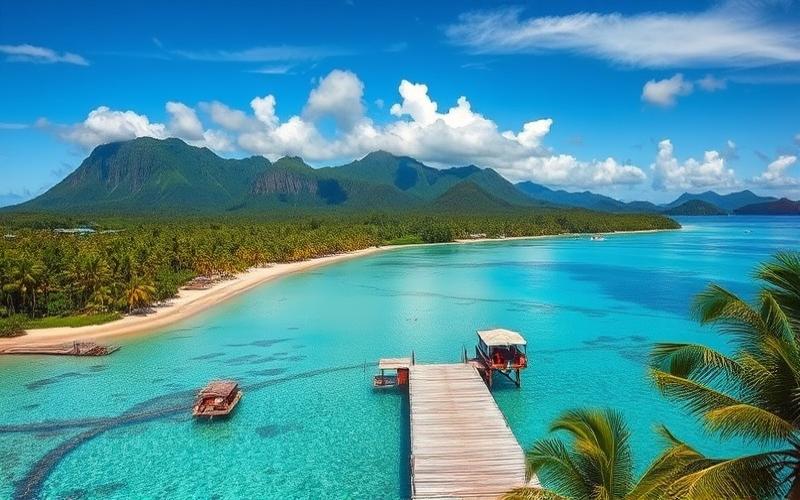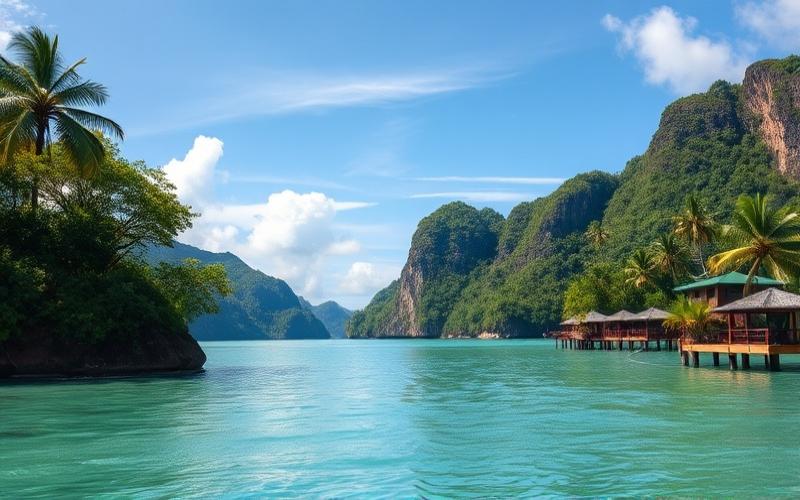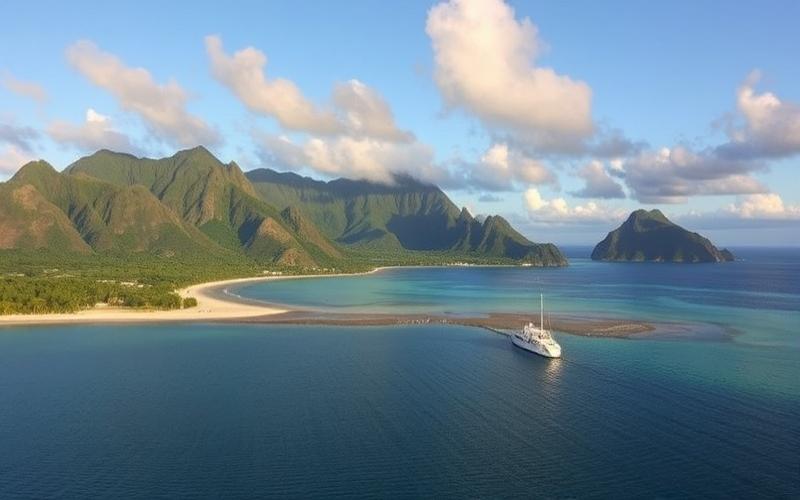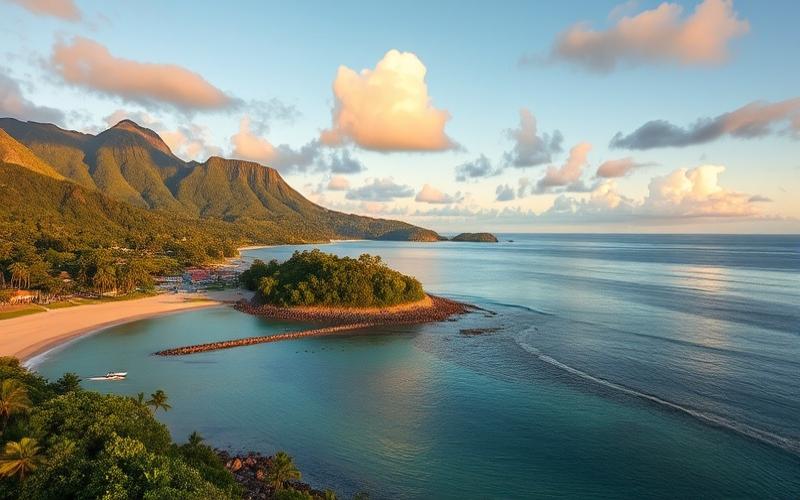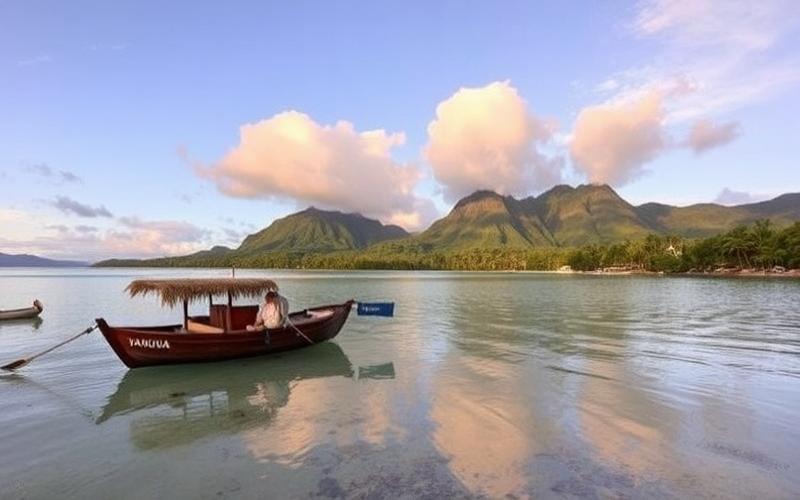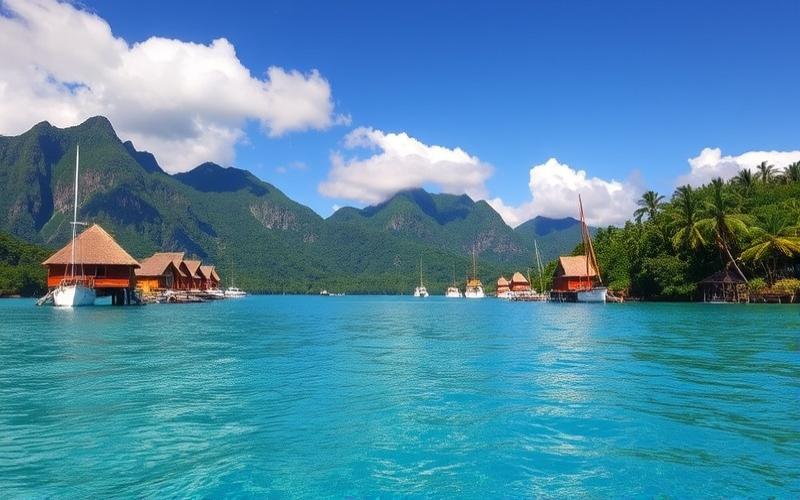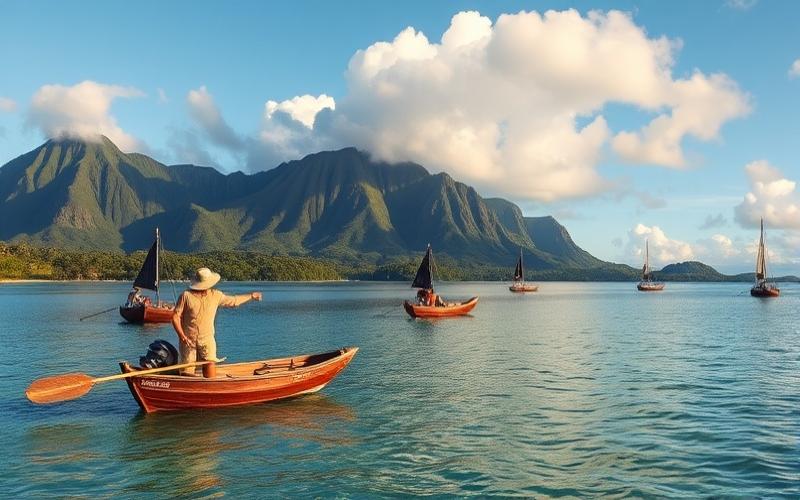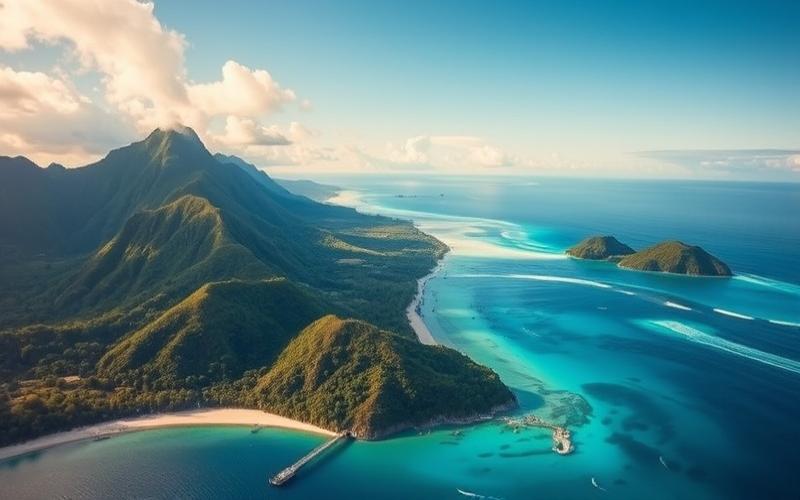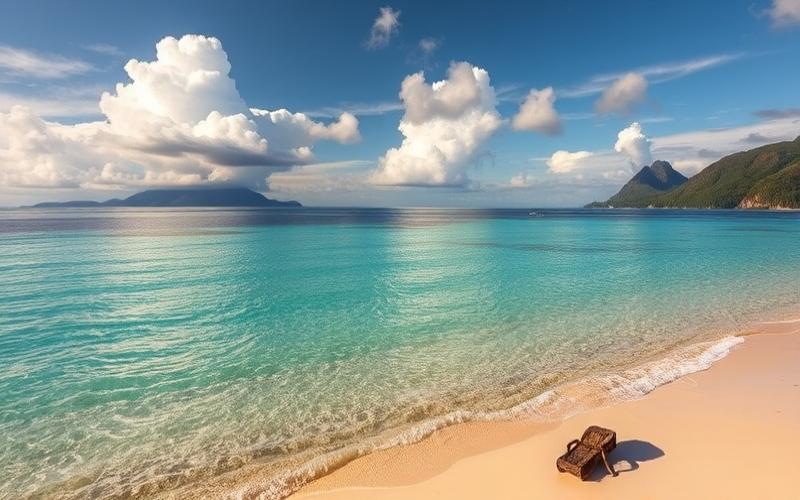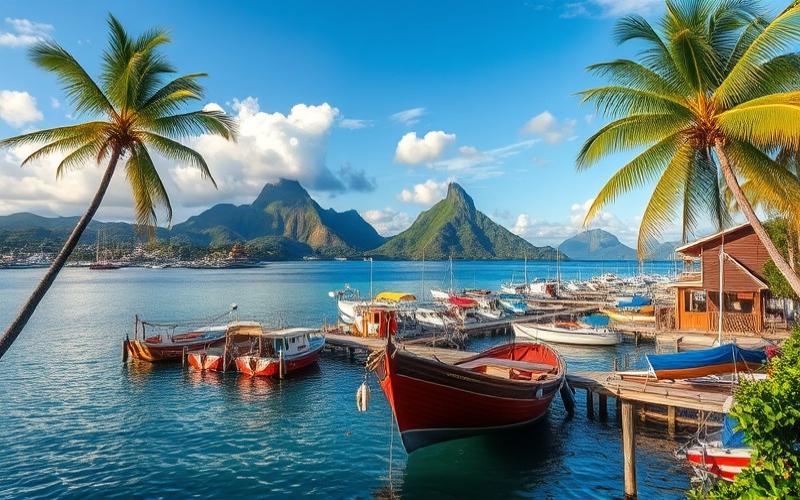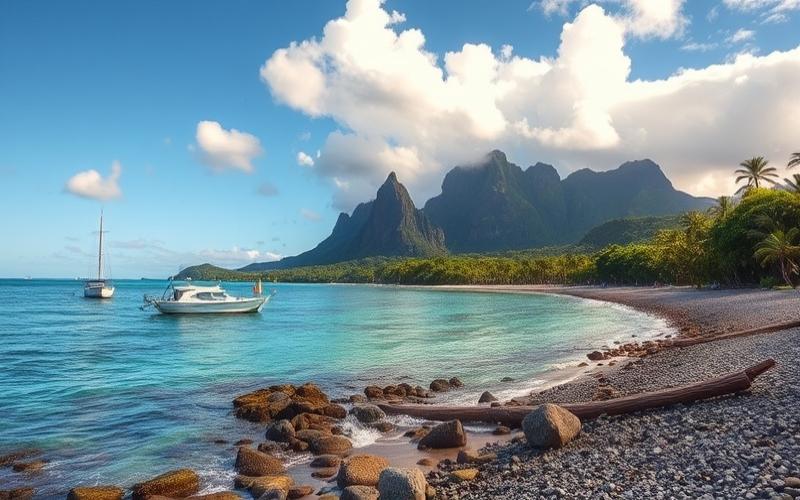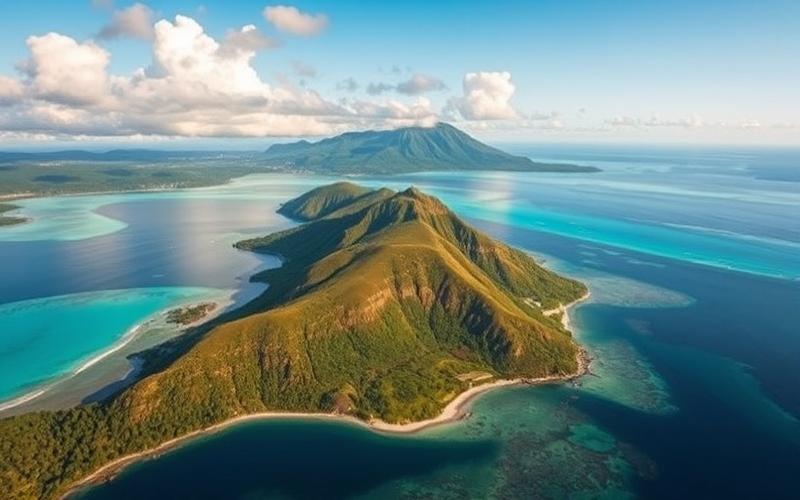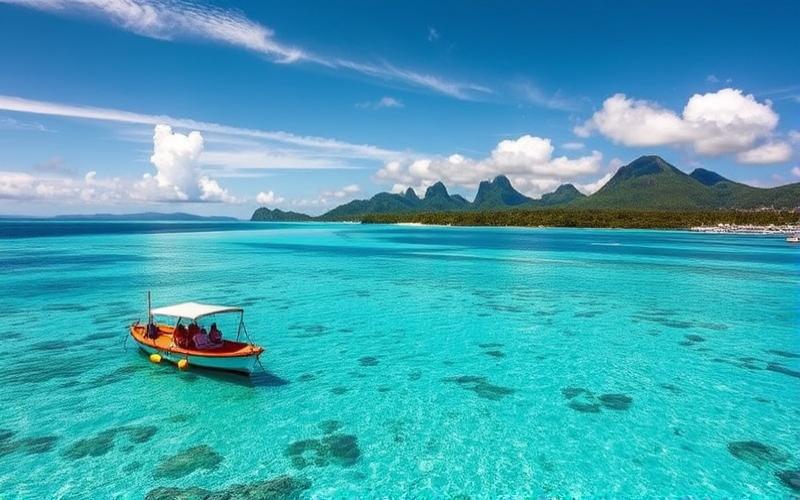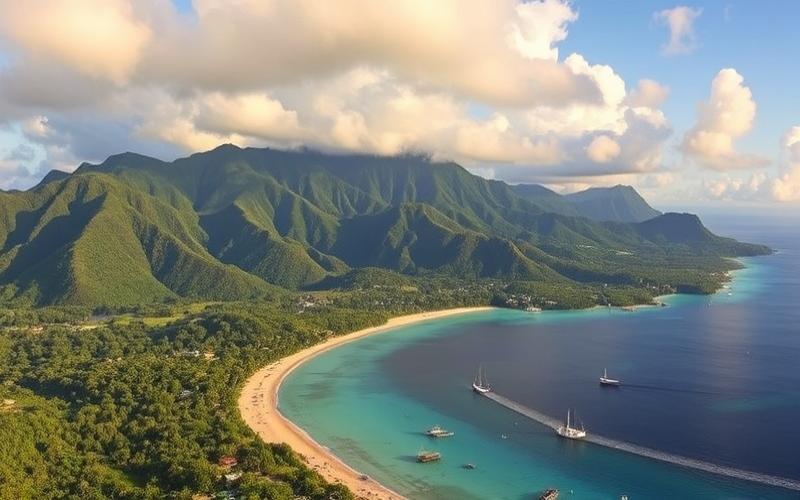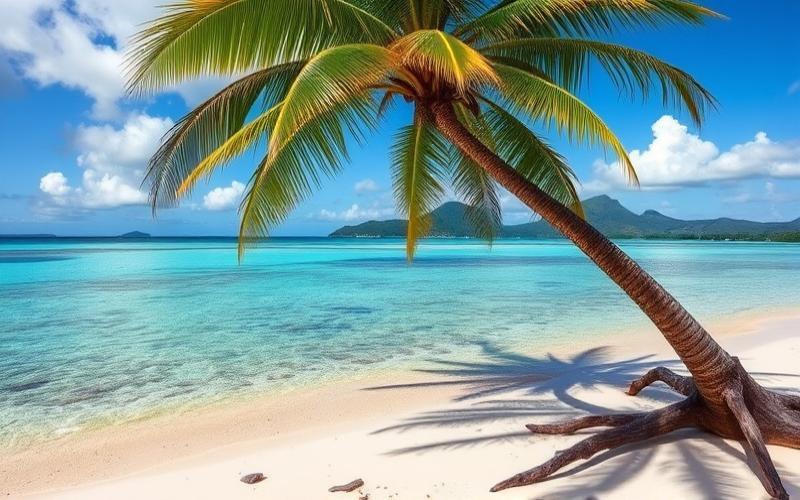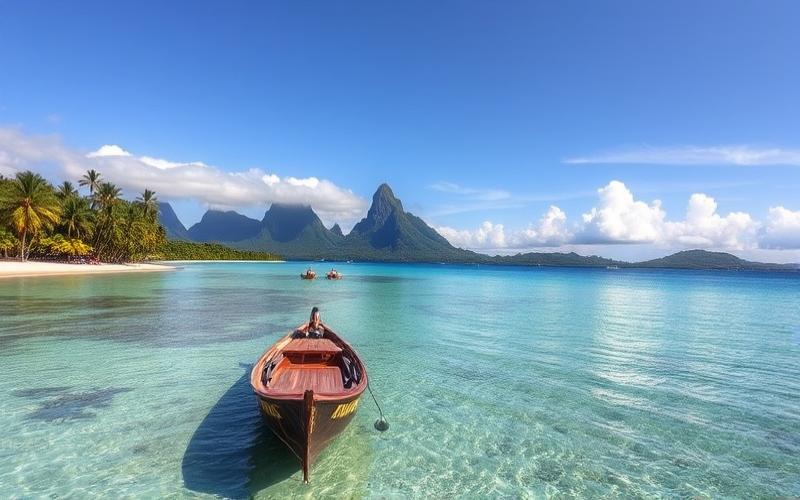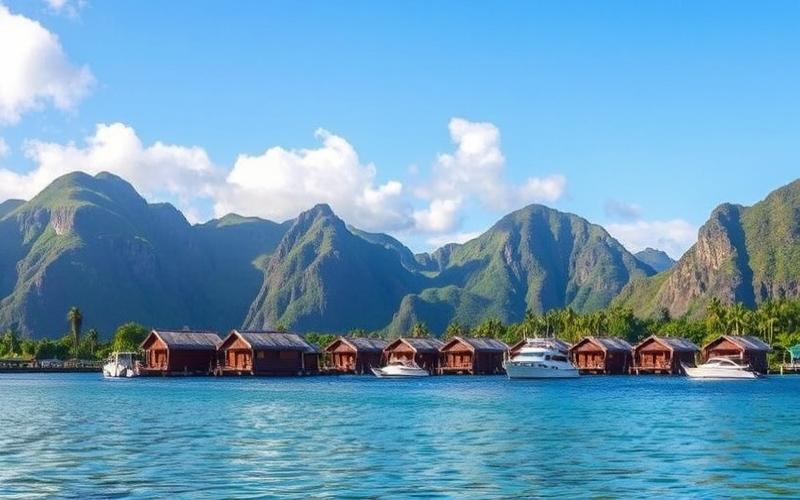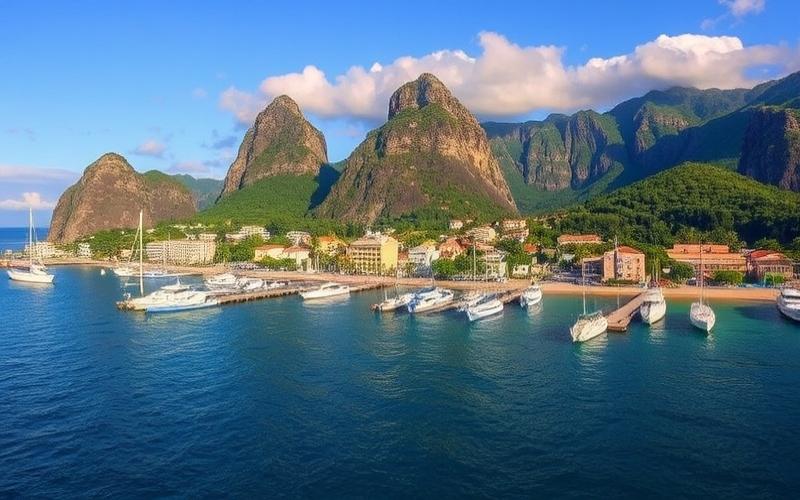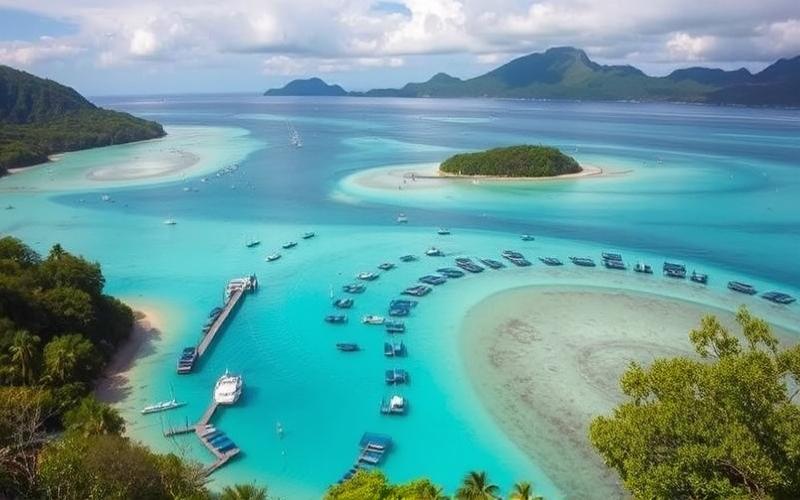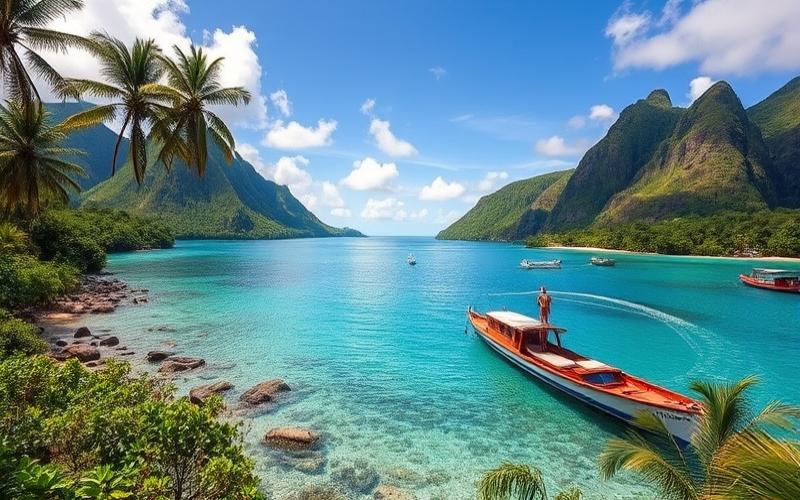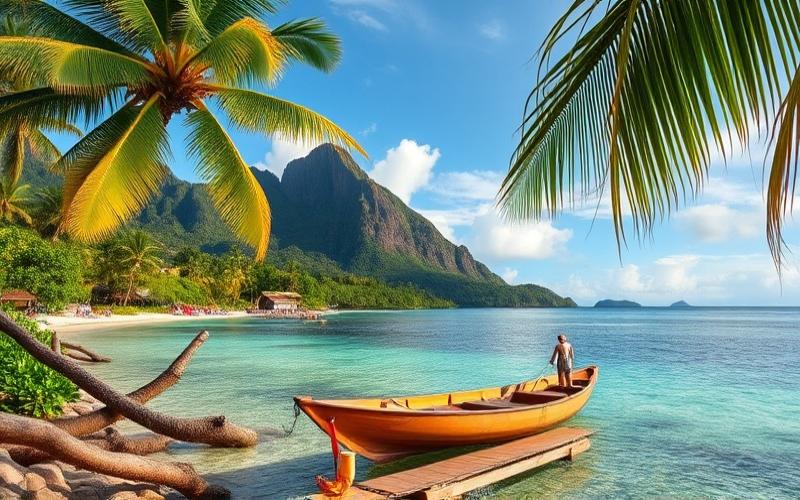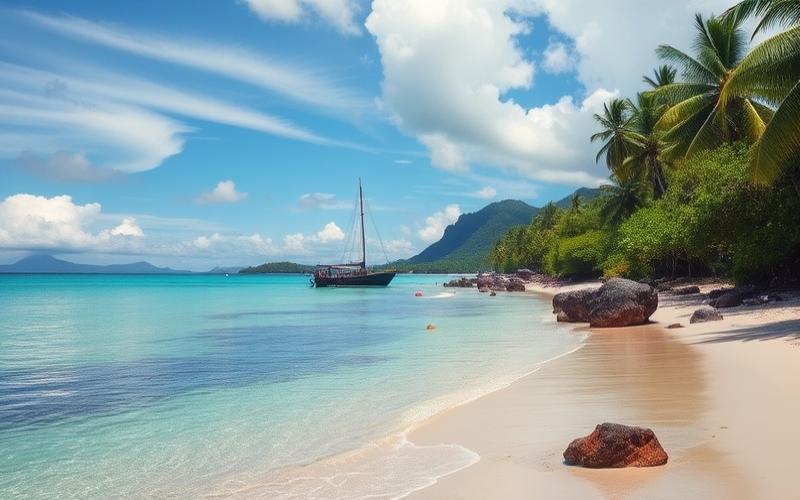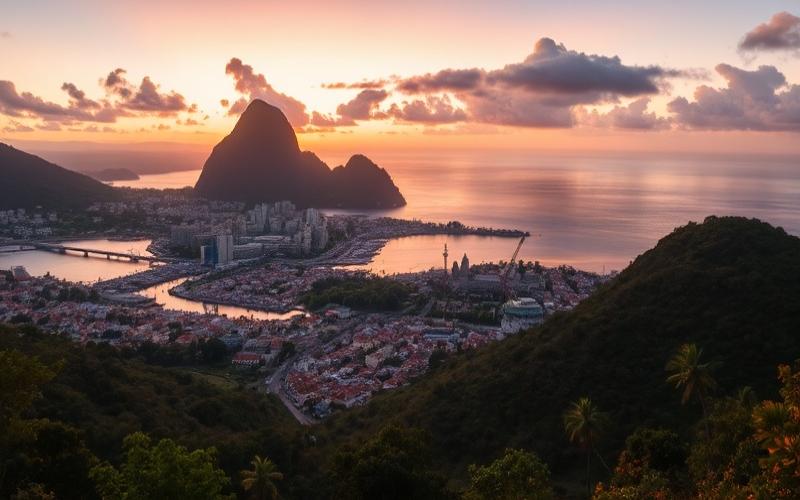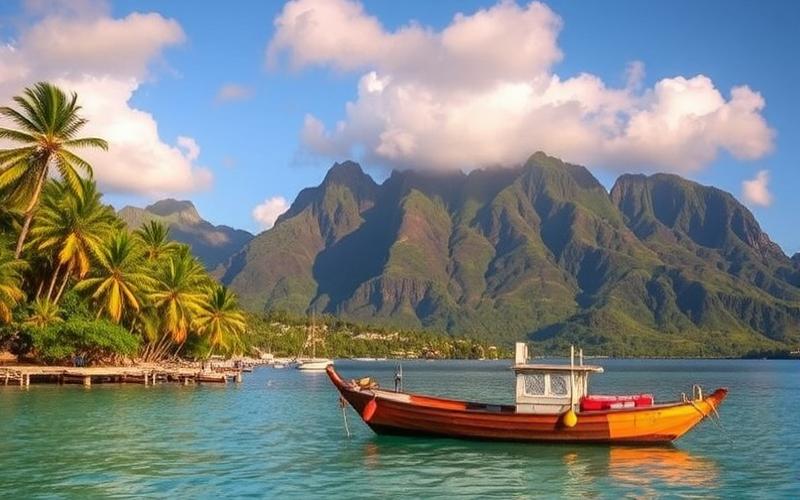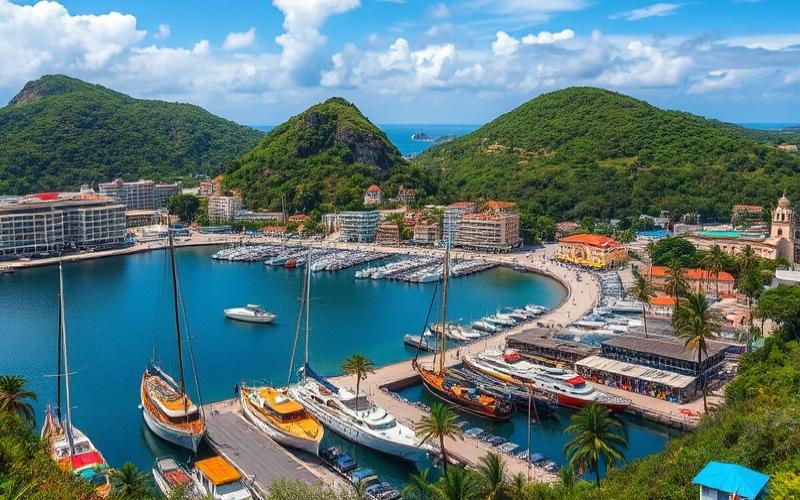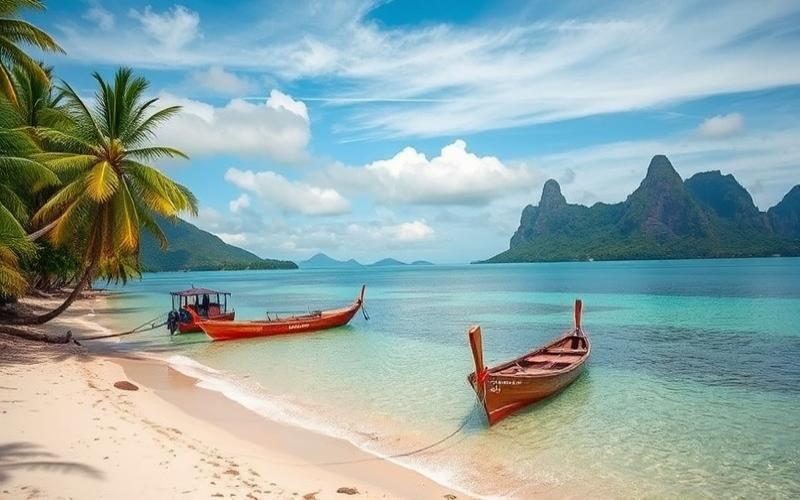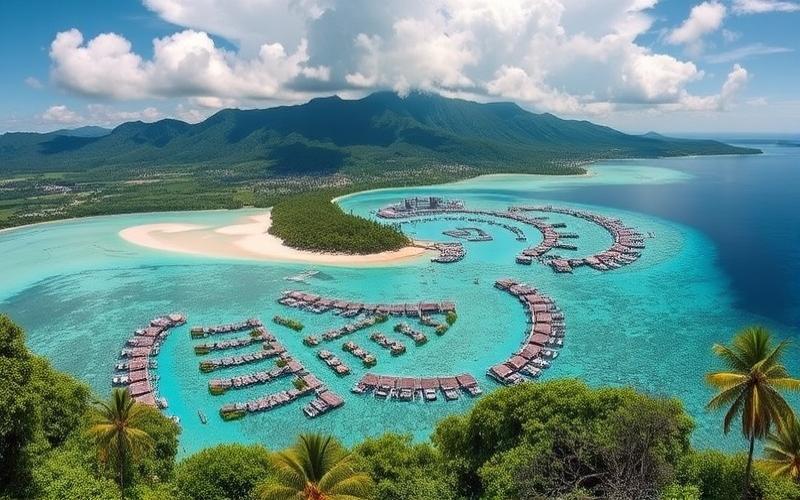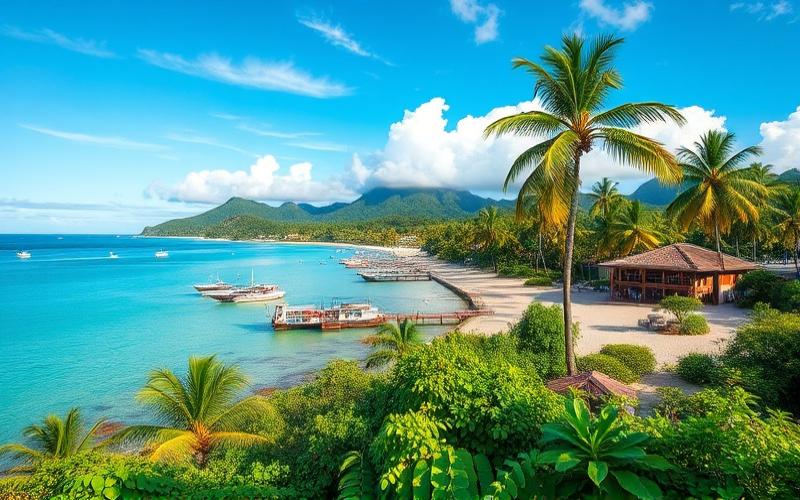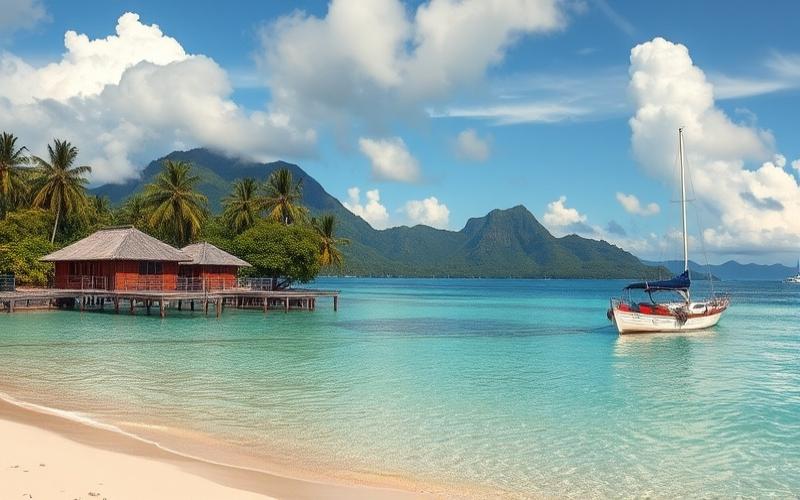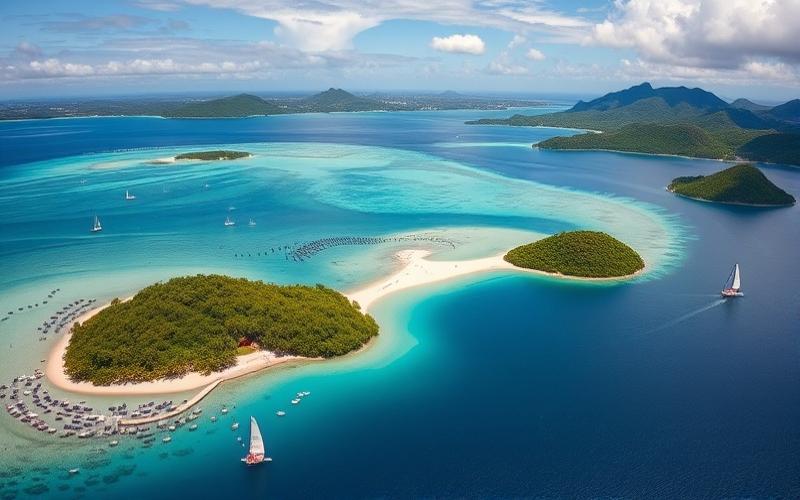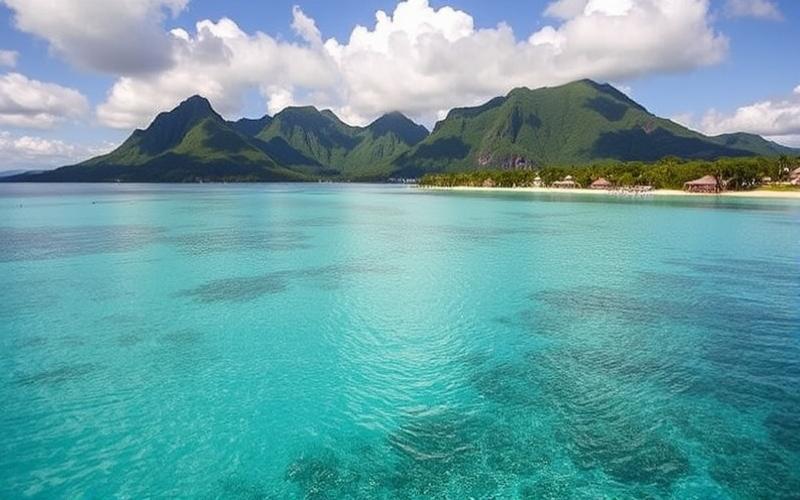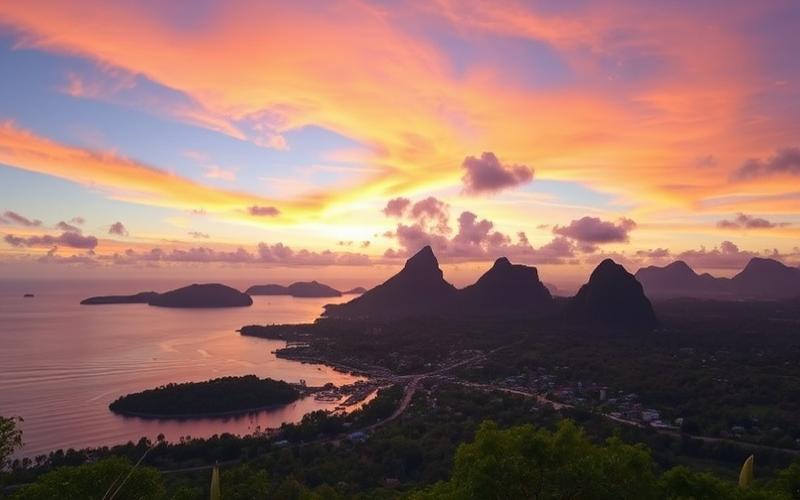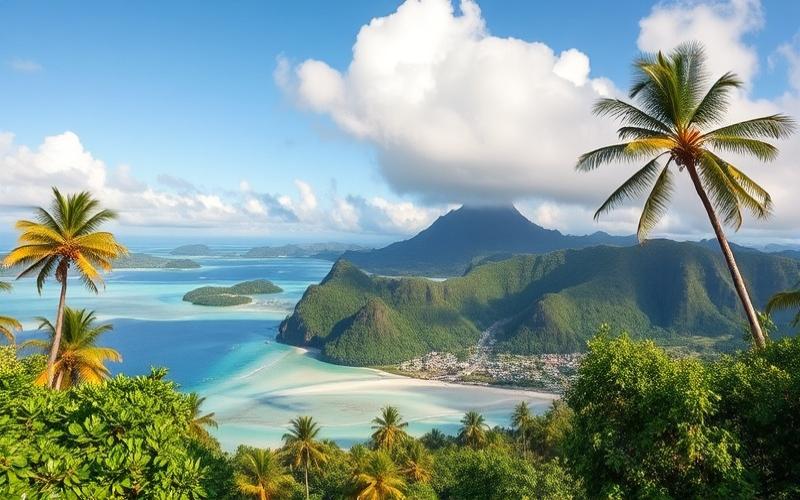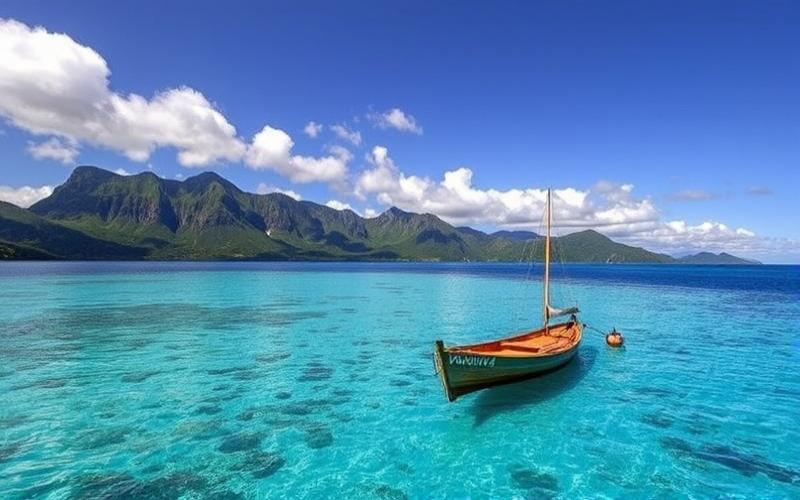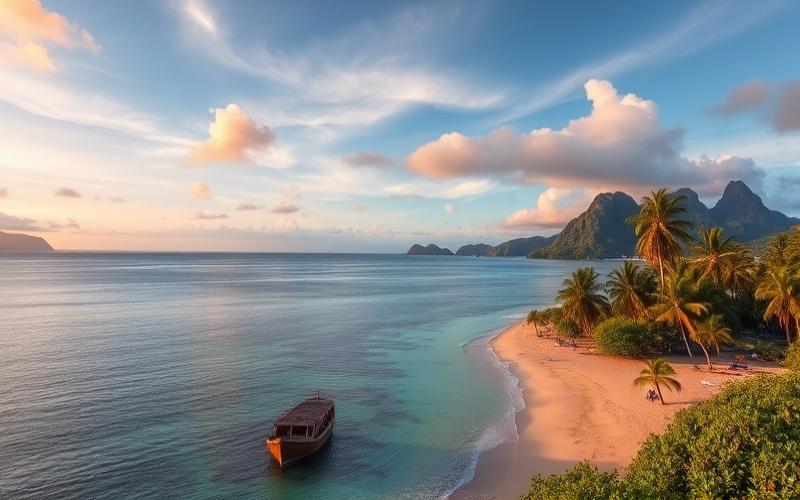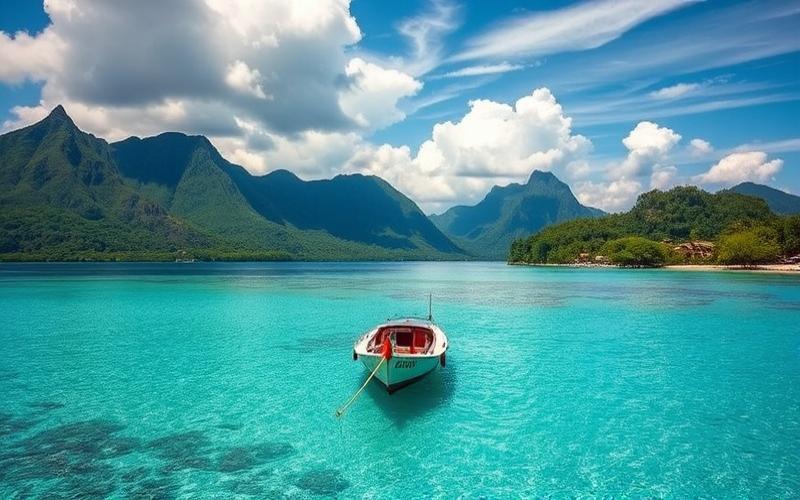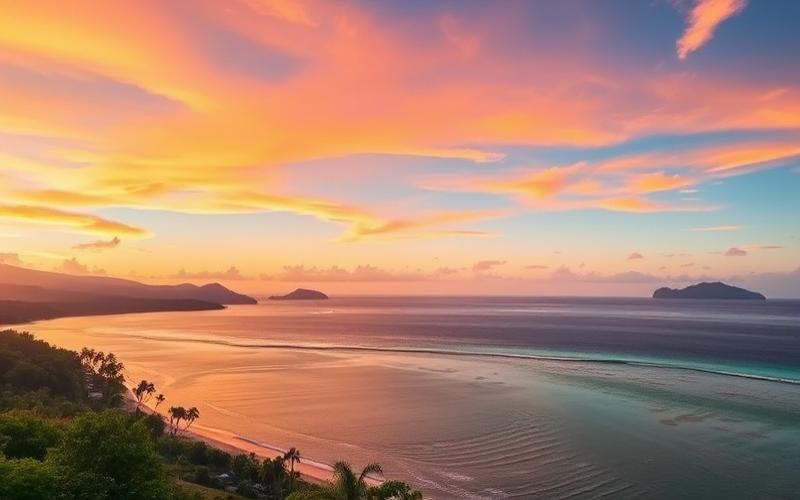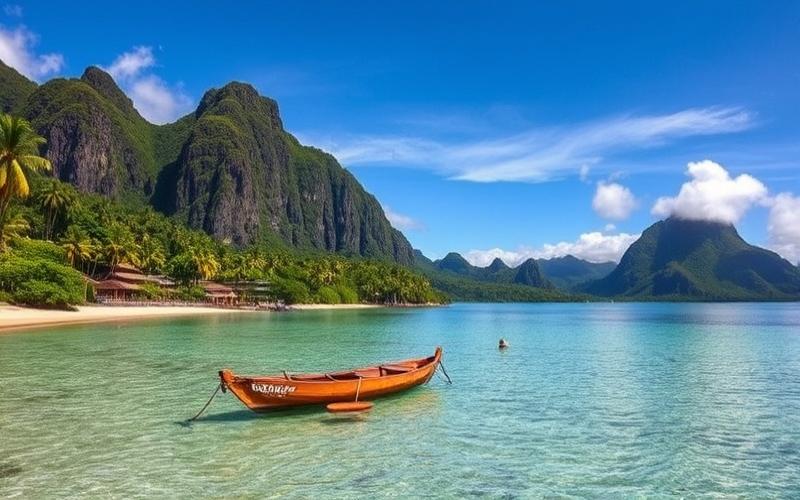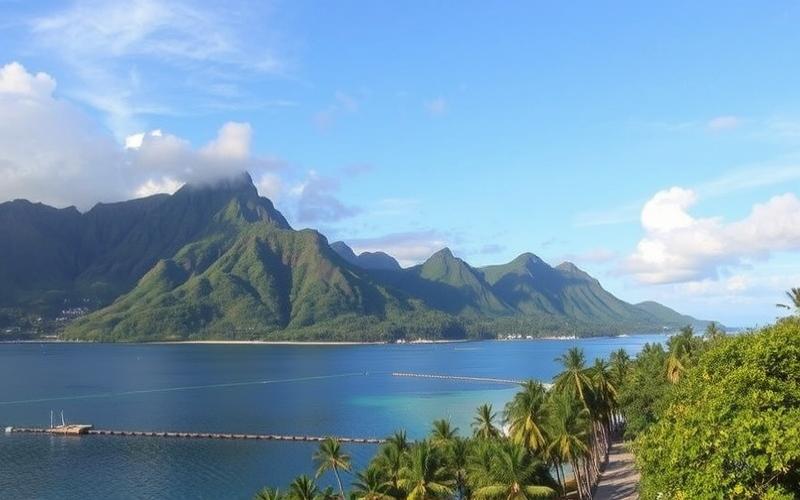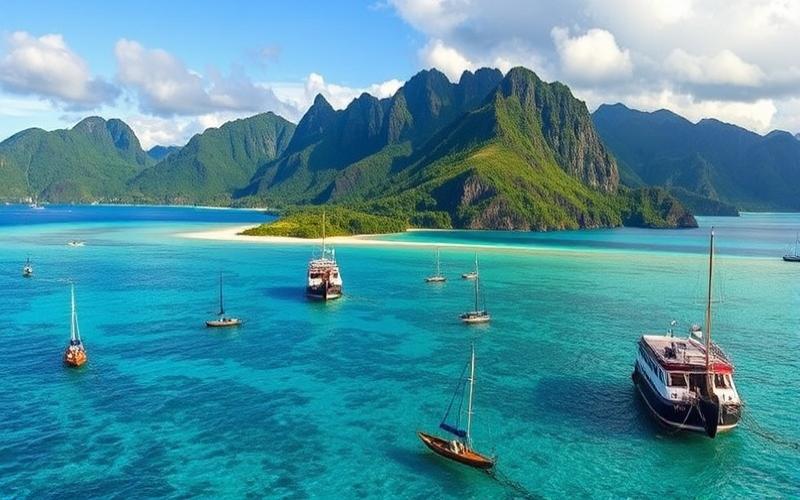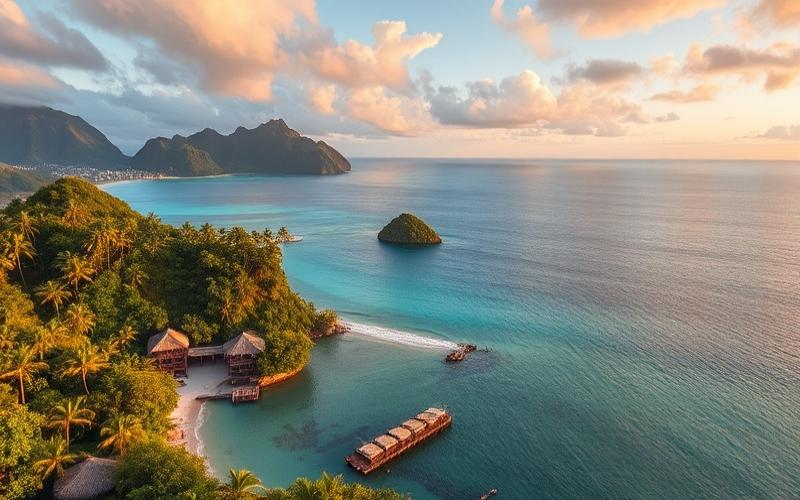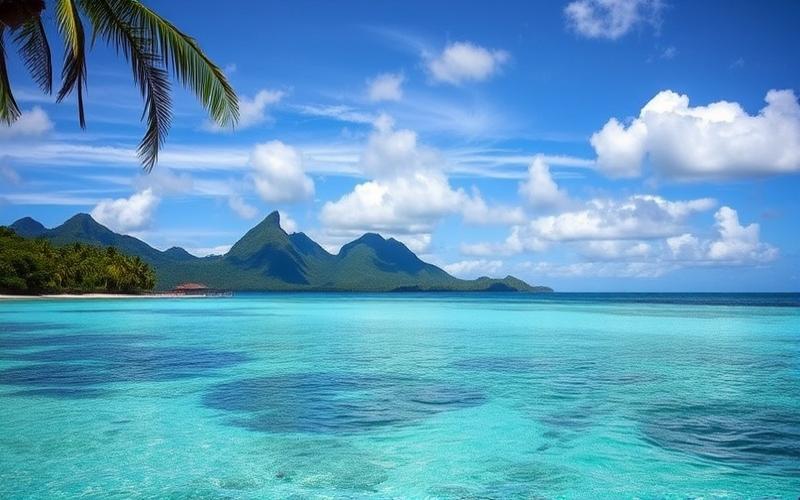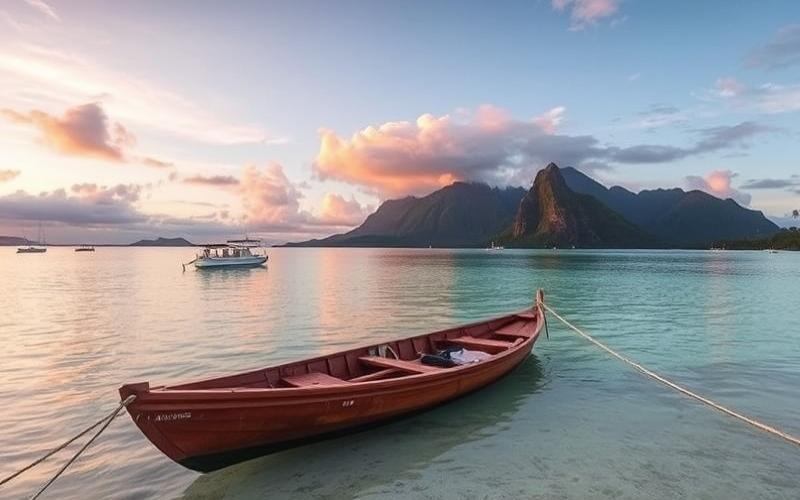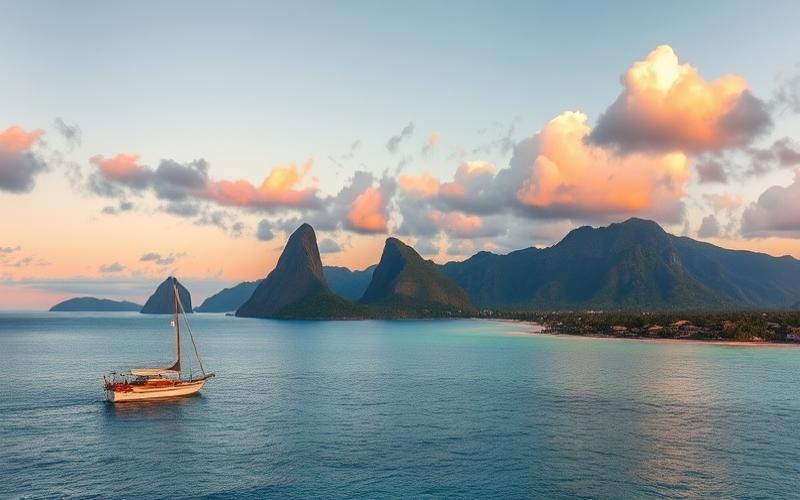
 Published on and written by Cyril Jarnias
Published on and written by Cyril Jarnias
Green Real Estate in Vanuatu: A Promising Evolution
In Vanuatu, green real estate is emerging as a rapidly evolving sector, driven by ambitious initiatives to strengthen environmental sustainability and climate adaptation.
New Environmental Standards in 2025
In 2025, the country will implement new environmental standards aimed at transforming construction practices and promoting the use of environmentally friendly materials.
Subsidies to Encourage Adoption of Green Standards
Simultaneously, the government is offering generous subsidies to incentivize real estate developers and property owners to adopt these green standards.
Good to Know:
These subsidies can cover up to 30% of the additional costs associated with green construction.
Regulations and Financial Incentives
This article explores in detail the innovative regulations and financial incentives implemented to stimulate an ecological transition in Vanuatu’s real estate sector, while contributing to the preservation of its rich natural heritage.
Eco-Construction Standards in Vanuatu
The regulatory framework for eco-construction standards in Vanuatu primarily relies on the imminent revision of the Building Code Act, overseen by the Ministry of Infrastructure and Public Utilities (MIPU). This code, initially based on Australian standards and enhanced by international contributions, aims to ensure structural safety, energy efficiency, and environmental respect for all new constructions starting in 2025.
Main Regulations and Guidelines Effective for 2025:
- National Building Code (revised in 2025), incorporating specific environmental sustainability criteria.
- Nationally Determined Contribution (NDC) 3.0 (2025–2035), which sets sectoral emission reduction targets in the building sector.
- Technical guidelines encouraging rational energy use and promoting construction practices resilient to natural disasters.
Responsible Organizations:
- Ministry of Infrastructure and Public Utilities (MIPU): primary authority for control and implementation of the national code.
- Technical advisory committee composed of local and international experts validating regular code adaptations.
- Licensed professional consultants responsible for certifying compliance with standards through technical certificates submitted to competent authorities.
Specific Criteria for an Eco-Friendly Building:
| Criterion | Main Requirement |
|---|---|
| Energy Efficiency | Enhanced thermal insulation; LED lighting |
| Sustainable Materials | Locally sourced FSC-certified wood; low-carbon concrete |
| Water Management | Rainwater harvesting systems |
| Climate Resilience | Earthquake & cyclone-resistant structures |
| Environmental Quality | Optimized natural ventilation |
Concrete Examples of Encouraged Materials or Technologies:
- Priority use of locally sourced, sustainably managed certified wood
- Green or reflective roofs reducing heat islands
- Photovoltaic solar panels for self-consumption of electricity
- Greywater recovery systems for irrigation or sanitation
Expected Impacts on the Local Real Estate Market:
- Progressive increase in land value linked to better construction quality;
- Mitigation of financial risks through improved resilience to natural disasters;
- Accelerated sustainable urban development meeting growing ecological expectations.
Environmental and Economic Benefits for the Sector:
Environmental: Measurable reduction in building-related emissions, enhanced preservation of local resources, notable limitation of construction waste.
Economic: Sustainable decrease in operational energy costs, local creation of skilled jobs in green sectors, enhanced attractiveness to responsible investors.
In summary, these standards aim not only to technically secure buildings but also to align their development with an eco-responsible approach that is beneficial both environmentally and economically.
Good to Know:
In Vanuatu, the 2025 eco-construction standards are primarily governed by the Ministry of Lands and Natural Resources and the Vanuatu Renewable Energy Agency. These guidelines notably require the use of sustainable materials, such as bamboo and certified wood, and the integration of solar technologies and rainwater collection systems. For a building to be eco-friendly, energy performance and waste reduction criteria are meticulously evaluated. The adoption of these standards is expected to stimulate the local green real estate market by increasing demand for sustainable projects, offering economic benefits through reduced energy costs and environmental benefits by minimizing the carbon footprint of structures.
Renewable Energy Subsidies in Vanuatu
In 2025, Vanuatu is intensifying its support for renewable energy in real estate through several subsidy programs and tax incentives designed to encourage the energy transition.
Types of Available Subsidies
- Direct subsidies for installing solar systems and batteries, funded by the REnew Pacific program with a $75 million USD investment aimed at accelerating the achievement of 100% clean energy goals by 2030.
- Specific subsidies for residential and commercial real estate projects integrating renewable solutions (solar, hydropower).
- Technical support dedicated to the real estate sector through international partnerships in 2025, facilitating the design and implementation of green buildings.
Offered Tax Incentives
- Temporary exemptions or corporate tax reductions for developers investing in the integration of photovoltaic solar or other green technologies in their constructions.
- Tax deductions on investments made to equip real estate properties with sustainable energy infrastructure.
International Programs and Partnerships
| Program/Partner | Type of Support | Description |
|---|---|---|
| REnew Pacific | Funding / Expertise | Major financial support for solar & battery projects |
| Asian Development Bank (ADB) | Grant | Additional grant (6 million USD) to improve energy access |
| UN Women & UN agencies | Technical Assistance | Support for vulnerable communities via solar installations |
Concrete Examples of Subsidized Green Real Estate Projects
- Widespread installation of solar power in several post-earthquake residential complexes, enabling better energy resilience against recurring natural disasters.
- Completion of the Brenwe Hydropower project powering the local grid on Malekula, drastically reducing diesel dependency while supporting sustainable real estate development.
Potential Impact on the Real Estate Market
Subsidies significantly enhance the attractiveness of new “green” real estate developments, improve their market value through sustainable reduction in energy costs, while meeting growing demand for resilient and ecological housing. Investors thus benefit from:
- Increased profitability through reduced operational costs
- Competitive advantage linked to environmental compliance
- Facilitated access to international financing
Opportunities Offered
- Lower initial cost for integrating solar/batteries
- Increased valuation of properties compliant with new energy standards
- Facilitated access to international financing
Associated Challenges
- Administrative complexity when preparing subsidy applications
- Need to ensure rigorous monitoring of compliance with technical criteria required by international donors
- Sometimes limited local capacity in terms of technical or logistical expertise
Current initiatives clearly position Vanuatu as an innovative regional laboratory for sustainable real estate through synergy between national government incentives and international financial partnerships. Opportunities are numerous but require regulatory anticipation and strong professional support.
Good to Know:
In 2025, Vanuatu offers various subsidies to promote renewable energy in the real estate sector, including tax credits for green building construction, as well as significant tax incentives for installing solar panels and rainwater harvesting systems. The government collaborates with international organizations such as the International Renewable Energy Agency to strengthen funding and technical support for sustainable projects. Exemplary projects, like the Port Vila eco-district, have already benefited from these subsidies, creating a model for future investments. However, investors must navigate a complex administrative process to obtain these aids, and developers often have to manage the high initial cost of green technologies despite long-term benefits in the real estate market. These initiatives aim to reduce the country’s energy dependency while making the built environment more resilient to climate change.
BREEAM Certification: A Quality Guarantee for Green Real Estate in Vanuatu
BREEAM certification (Building Research Establishment Environmental Assessment Method) is a globally recognized British benchmark for assessing the environmental performance of buildings, whether residential, commercial, or industrial. It relies on a multi-criteria analysis that includes energy management, water management, waste management, greenhouse gas emissions, indoor air quality, and the use of sustainable materials.
Main Criteria Assessed by BREEAM:
- Energy Efficiency
- Rational Management of Water Resources
- Reduction of Polluting Emissions
- Indoor Environmental Quality (natural light, healthy air)
- Responsible Use of Materials and Sustainable Waste Management
| Achievement Levels | Description |
| Pass | Minimum level |
| Good | Good level |
| Very Good | Very good level |
| Excellent | Excellence level |
| Outstanding | Exceptional performance |
Applying the BREEAM standard in the real estate sector allows developers and investors in Vanuatu to showcase their commitment to sustainable development and align their projects with international best practices. This label is particularly relevant for valuing green real estate in a context where ecological issues are major.
Importance in Vanuatu:
In Vanuatu, an island nation exposed to climate risks and keen to preserve its exceptional natural heritage, BREEAM certification stands as an international guarantee of ecological quality. It promotes:
- Essential energy optimization given local constraints.
- Active protection of the natural environment.
- Increased attractiveness to foreign investors seeking responsible assets.
Concrete Examples in Vanuatu:
Although few to date due to the emerging nature of the local green market, some high-end tourist real estate programs or eco-friendly resorts have drawn inspiration from or committed to pursuing BREEAM certification in order to:
- Differentiate themselves in the international segment.
- Meet the demands of a clientele with high sustainability standards.
Observed Impacts:
Effects on Real Estate Value & Attractiveness:
- Higher valuation during transactions due to better operational efficiency (reduced energy expenses).
- Marked interest from environmentally conscious foreign investors seeking quantifiable transparency through a recognized label.
Integration into Local Standards & Government Incentives:
The Vanuatu government actively encourages the adoption of international standards like BREEAM through various measures:
- Partial tax relief for certified green constructions.
- Facilitated access to certain urban planning permits for labeled eco-responsible projects.
- Pilot programs supporting local training in sustainable building.
The voluntary approach towards BREEAM certification thus not only allows real estate project leaders in Vanuatu to improve their environmental impact but also their strategic positioning in response to growing international demand for “green” real estate.
Good to Know:
BREEAM certification, an acronym for Building Research Establishment Environmental Assessment Method, is an international system for certifying the ecological performance of buildings, essential for promoting green real estate in Vanuatu. It evaluates projects on various ecological aspects, such as energy efficiency and water management, and serves as a selection criterion for investors and builders wishing to comply with global sustainable development standards. In Vanuatu, projects like the Port Vila eco-resort have obtained this certification, thereby increasing their real estate value and attracting foreign investors eager to participate in ecological initiatives. In harmony with local standards, the Vanuatu government offers certain subsidies and tax incentives to promote BREEAM-certified constructions, underscoring their commitment to environmentally respectful development, perfectly integrating this certification into local sustainability policies and enhancing the country’s appeal for ethical investment projects.
Disclaimer: The information provided on this website is for informational purposes only and does not constitute financial, legal, or professional advice. We encourage you to consult qualified experts before making any investment, real estate, or expatriation decisions. Although we strive to maintain up-to-date and accurate information, we do not guarantee the completeness, accuracy, or timeliness of the proposed content. As investment and expatriation involve risks, we disclaim any liability for potential losses or damages arising from the use of this site. Your use of this site confirms your acceptance of these terms and your understanding of the associated risks.

